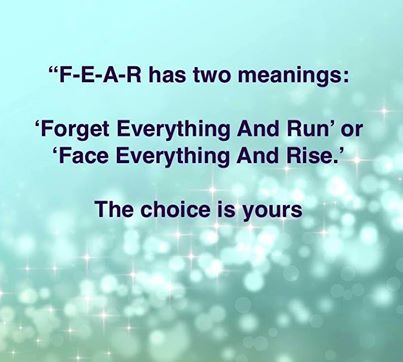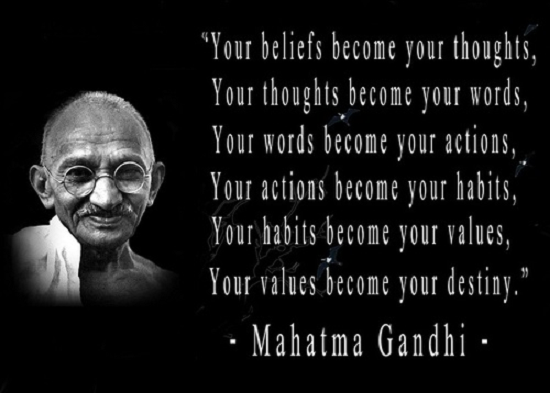Getting diagnosed is a double edged sword. On one hand, you can find comfort and a sense of relief in finally knowing what’s going on inside your body. But on the other hand, being diagnosed forces you to see yourself in a new, often negative light. You realize that you are not well. Part of your body is dysfunctional. For me, that was a difficult truth to face.
Whether you were recently diagnosed with a terminal illness, or you are battling an invisible illness or injury—a diagnosis can bring sense of isolation. You feel separated from the outside world. You now know without a doubt that part of you is unwell.
Normal every day life starts to feel hollow. You start to feel like you are living in two different worlds. One inside your head, where the reality of your illness consumes every waking thought. On the outside, you can smile and pretend at times that you are fine, but the truth is, the reality of your illness is never far from your mind.
For me, I was first diagnosed with a serious illness at 15. It was 2001, and a year of great personal change and societal upheaval. In the spring of 2001, my aunt took her own life. This was the first time I lost a close family member. It was a shocking and traumatic blow to my close-knit family. During the same time, my beloved grandfather was dying of leukemia. Then in the fall, 9/11 happened and life in the U.S., as well the entire world, was forever changed.
I felt like I was losing control. It was all too much. I felt scared and alone. Soon I just wanted to sleep and shut off the outside world. When I wasn't sleeping, my eyes were filled with tears. The constant stream of scrutiny in mind was unending. In my head, I was failing my family, my friends and even school. I could not find any hope in my current situation or the world. When my family would ask what was wrong, all I could do was answer, "You just don't understand."
Soon the negative thoughts consumed nearly every waking thought. I was hardly eating or sleeping. I wanted it to stop. I wanted the pain to end. It was then that I first attempted to take my life.
Thankfully, my mom found me before any serious harm came to me. My suicide attempt was truly a cry for help. I needed help getting control of all the thoughts in my head.
After my suicide attempt, I was diagnosed with bipolar disorder. I was given a host of medicines to try, from anti-depressants to lithium. I began to go to therapy. We were told to limit stressors and identify triggers. The medicine helped to slow down my racing thoughts but the rest of the world seemed to slow down along with it.
I felt like I was standing alone in a crowed room, screaming at everyone around me to hear me and see the pain that I was in. But everyone else was moving so fast that they could not hear or even see me. They were not on my level. Once again I was alone.
While I wanted to fully accept my diagnosis and treatment plan, part of me rejected the idea that I wasn't well. After all I had been through that year and early on in my life, who wouldn't have a hard time adjusting to this much change and tragedy?
In my head, being told I was bipolar at 15 was a death sentence. My aunt who took her life was bipolar. I assumed that I was destined to meet a similar fate since there is no cure. I began to rebel and thought it was best to live fast and hard since I was destined to die young. So I did.
I fought the ups and downs of bipolar disorder for over 5 years. Throughout high school and my early years of college, I went on and off medicine and in and out of therapy depending on the severity of my symptoms. I ultimately had to leave college when I became pregnant with my first child at the age of 20.
The patterns of mania and depression were obvious to everyone but myself. It was only after I lost control again and was on the brink of suicide that I finally sought and accepted the help and treatment I so badly needed.
Taking Control
When I found out I was pregnant at age 20, life as I knew it was forever changed...for the better. By honoring the new life growing inside me, I was able to finally start to heal. I wanted to be better, not just for myself, but I wanted to be there to love, guide and nurture the new life growing inside me.
Whether you are struggling with addiction, mental illness, trauma or serious illness, I believe the first step is acceptance. You need to accept and surrender to your situation in order to fully move past the negative and find the positive.
In a 12 step program, recovery starts by admitting you are powerless, but that a power greater than yourself can restore you to sanity. For some, they find strength by finding a higher power in religion, while others find solace in nature, their pets or in living for their family.
I believe that the first step toward recovery lies in finding a motivation outside yourself. For me, my saving grace was having my daughter. Feeling the flickers of life growing inside me filled me with hope for me future—for the first time in my life. She became the cornerstone upon which I built the foundation for my new life. Having the courage to have her, gave me the strength and confidence I needed to finally face my fears and grow into the woman I knew in my heart I was capable of becoming.
By finding the right mix of medicine along with cognitive behavioral therapy, I was finally able to take back control of my life and find the stability that is so often elusive when you are suffering from mental illness. Outside of medicine and therapy, what helped me the most to come to terms and accept being bipolar was the unwavering love, support and guidance from my (now) husband, parents and close friends.
I believe having a strong support system outside of medicine and therapy is critical for long-term success. Their unconditional love allows me to feel at ease confiding my thoughts, no matter how strange or silly they might seem. This helps me understand if I am processing and reacting to a situation in the right manner.
One of the most challenging parts of dealing with bipolar disorder or cancer is learning how to separate yourself from your illness so you can learn effective strategies to cope with the anxious or obsessive racing thoughts. What helped me tremendously was understanding that intrusive thoughts are a symptom of my disorder.
Intrusive thoughts are thoughts that consistently enter your mind against your will. They're considered intrusive because you simply cannot get them out of your mind, and they often pop up at unusual moments. Intrusive thoughts may also occur in flashes, and often cause significant anxiety when they enter your mind. Examples of intrusive thoughts include unwanted memories and violent or sexual thoughts. Through cognitive behavioral therapy and by practicing mindfulness and meditation I was able to learn how to better control them.
A book that helped me enormously to come to terms and learn effective coping strategies was Take Charge of Bipolar Disorder: A 4-Step Plan for You and Your Loved Ones to Manage the Illness and Create Lasting Stability by Julie Fast. If you or your loved ones are suffering from mental illness, I highly recommend reading this book. One of the reasons this resonated with me is the author Julie Fast has bipolar disorder. She wrote the book along with her doctor. Her honest perspective about dealing with mental illness coupled with the medical advice make this book one of the best I have ever read on the topic.
After committing myself wholeheartedly to my treatment plan, I was able to go back to college, graduate with honors, get married, start my career and a family. Life was finally coming together. Then I was diagnosed with cancer. It's a shocking turn of events to accept when you feel that your life is finally getting on the right track.
However, I am choosing to view my cancer diagnosis with an open and grateful heart. I’m grateful because I believe all my past experiences have prepared me for the difficult journey ahead. One of the ways I have been able to remain strong, positive and focused on my recovery is by applying a growth-centered mindset to my current situation.
As Eckhart Tolle explains in his book, "A New Earth: Awakening to Your Life's Purpose:




